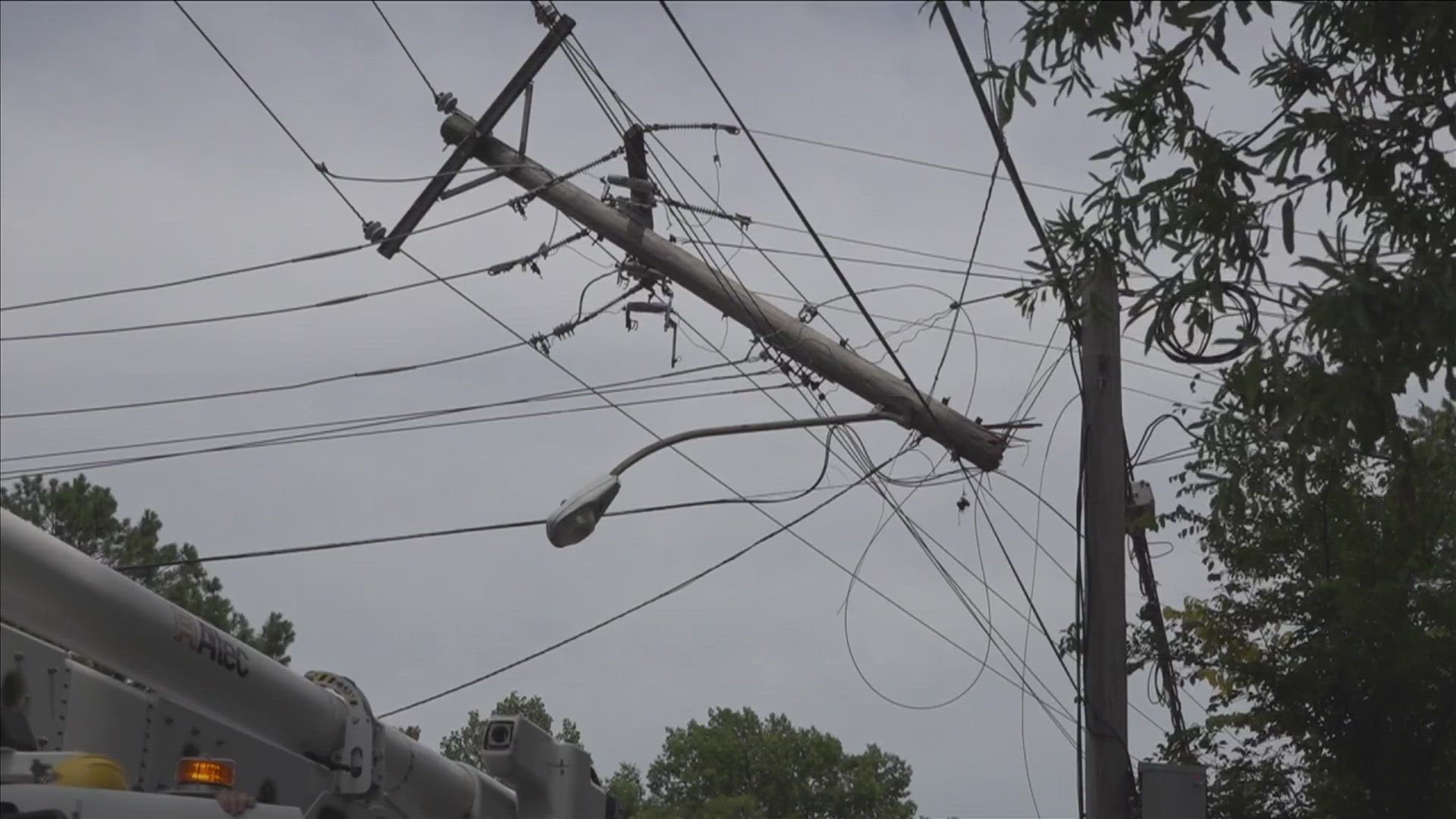MEMPHIS, Tenn. — Memphis Light Gas and Water President Doug McGowen described the summer of 2023, which saw two of the 10 worst outages in MLGW history, as "unprecedented."
“We've had about 800,000 customers impacted over the last 18 months,” McGowen said. “That's the same number that we had impacted in the previous 10 years due to severe weather.”
Since the storms in June and July, McGowen has visited various Memphis communities, finding out how MLGW can adapt its “Way Forward” plan to fit the specific needs in different areas.
Linda Harris lives out near Millington and said they lost power for four days in June.
“I couldn't communicate with anyone in the outside world,” she said. “And there were trees that were down, and it looked like a bomb had come and struck our area.”
Tracy Childers in Midtown said a massive tree pulled down several power lines in late June.
“Right as we came out, we saw the line right over here with a big kind of explosion when it hit the ground,” he said. “And it was a little bit scary having the downed powerlines on the ground with the tree on top of it.”
McGowen has constantly said that catching up on tree-trimming is one of the biggest pieces for improving resiliency, along with upgrading the infrastructure and improving day-to-day reliability. He said they will begin their aggressive tree-trimming in August with the goal of trimming 1,400 miles of trees by 2024.
“That's roughly 100 miles a month that they're going to have to get done between the three contractors,” McGowen says.
The MLGW CEO also said they're working with municipalities to identify hazardous trees on private property, even if they don’t threaten power lines.
“(The tree) may be sitting 50 feet back from the street, but if it's 100 feet tall, if that tree is at the end of its life, or if it is diseased or dead or has suffered damage, it could be declared a dangerous tree” McGowen says.
MLGW is also incorporating cutting edge technology.
“We're using drones that have machine learning and AI,” he said. “We're using radar and LIDAR to help us detect issues that we may not be able to see from the ground with a naked eye. That's going to give us a really big leg up to know what's out there what to fix first.”
MLGW is currently in the process of replacing power polls and transformers in Orange Mound, the worst area for outages in Memphis.

